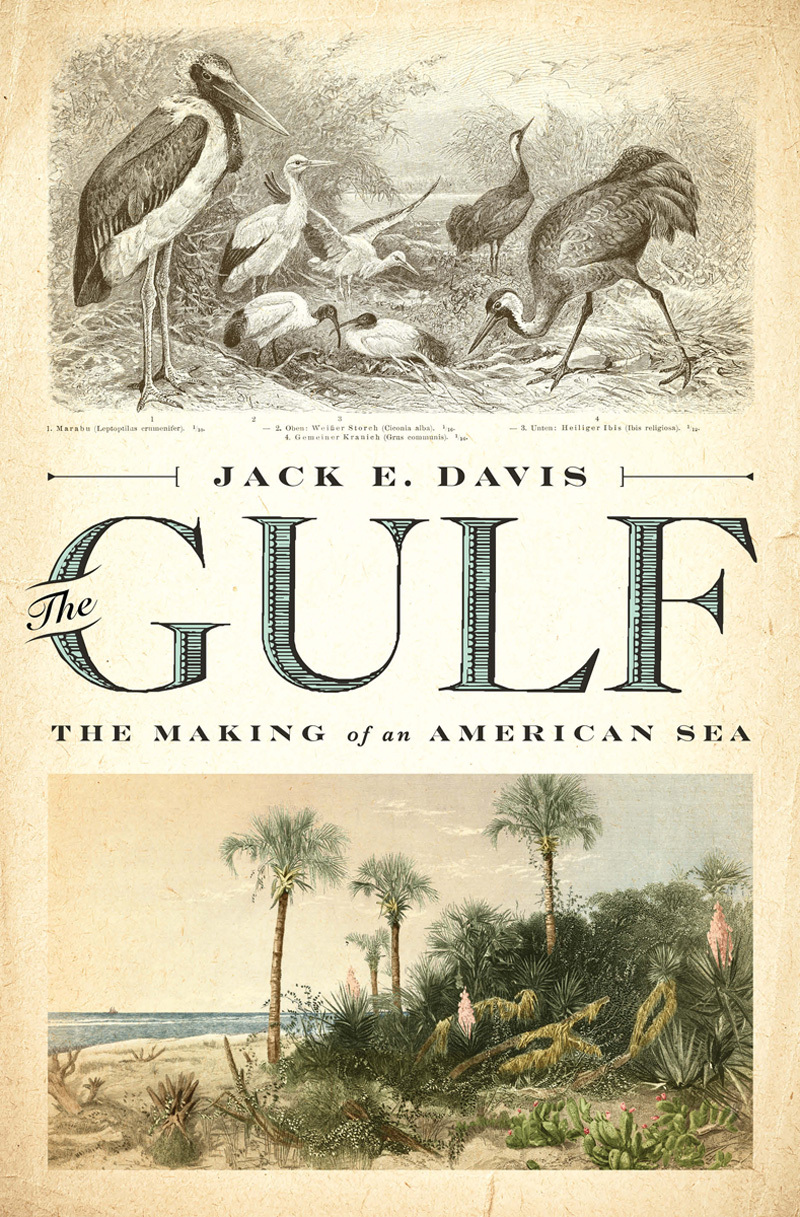I've traveled a lot in the United States, but to my mind, the Gulf of Mexico has seemed elusive and inaccessible: the first time I saw it was from the remote western edge of the Everglades, a part of the national park where few venture. Then, I saw it from a small fishing village that seemed intent on disappearing from the map of Louisiana. A third time, just recently, I saw it from Texas' beautiful Padre Island National Seashore. Three times might seem like many, but we're talking a big old gulf here--and many fewer encounters than I've had with the Atlantic or Pacific. The Gulf, Jack E. Davis contends, is rather forgotten, dimmer in the American imagination than either of the great oceans. And yet, it's the Gulf that's truly an "American sea"; though Mexico has nearly as much shoreline on it (and claims the name), the waters of the Gulf emerge almost entirely from the Mississippi, America's river. Its history, he says, is American history, from the birth of European colonization to the modern mega-business of tourism, commercial fishing, and, of course, oil.
What distinguishes The Gulf is the way that Davis brings together various genres and methods: it's a history book, but also a natural science book, and a work of cultural criticism. He begins by describing the arrival of Spanish colonizers and describing their interactions, typically fraught, with local tribes in Florida and Texas. Though the Gulf's shores were the first point of mainland contact for Europeans, the Gulf itself was long forgotten in the making of the American colonial experiment; only in the mid- to late-20th century, Davis says, did the prospect of fishing bring American attention. (Davis describes the Spanish sailors as unable or unwilling to eat the immense bounty of shrimp, oysters, and fish that provided sustenance to the Calusa and Karankawa, even as they ate their own horses and boot leather.) And even then, we learn, it's sport fishing--not commercial fishing--that makes the Gulf, where Americans first learned to hook the tarpon, a massive fish who had eluded anglers for a century.
In each section, Davis relies on the stories of individuals to tell the story of the Gulf. Some, like early settler Leonard Destin (namesake of Destin, Florida) and Key West resident Ernest Hemingway, are familiar, but others are more underheralded figures, like the environmental lawyer working to clear the Gulf of industrial pollution, or the reckless brothers who turned west Florida into a sinking morass of real estate grotesqueries. I was especially stuck by the story of Walter Anderson, an artist I'd never heard of, who basically abandoned his family to live on the remote islands of what are now the Gulf Islands National Seashore, and whose painted shack walls are preserved in a museum in Ocean Springs, Mississippi. Davis never wants the reader to forget that the story of the Gulf is the story not just of birds and sawgrass and oil but the story of people, too.
The Gulf isn't shy about its political and ecological agenda. Perhaps partly because it is so ignored in the American imagination, the Gulf of Mexico is uniquely endangered. The fish are overfished; the birds, even after the early 20th century push to preserve their habitats to keep them safe from plume hunters, are diminishing in number. Oil, of course, is the number one threat, but it's joined by the effects of heavily polluting factories and the effects of eliminating marshland in favor of landfill and sea wall. "We cannot destroy or control the sea," Davis notes, "but we can diminish its gifts, and when we do, we turn away from our providence and diminish ourselves."


No comments:
Post a Comment